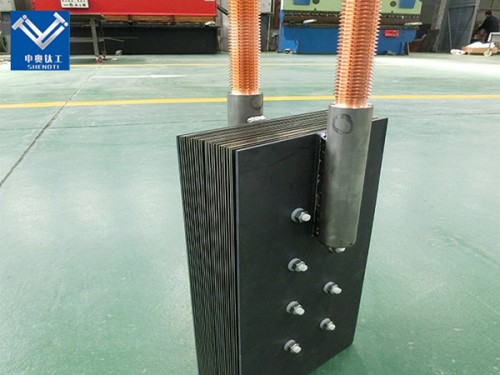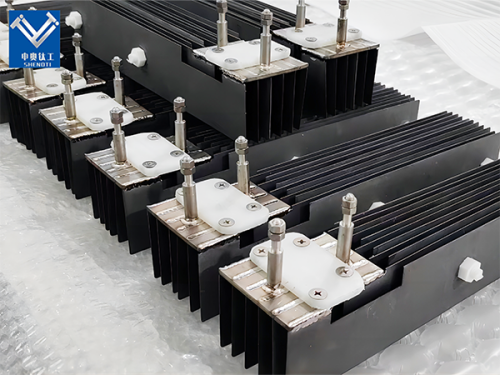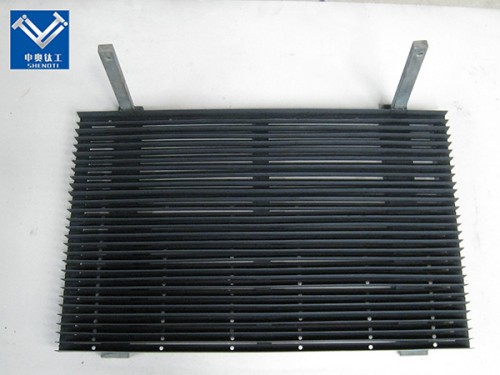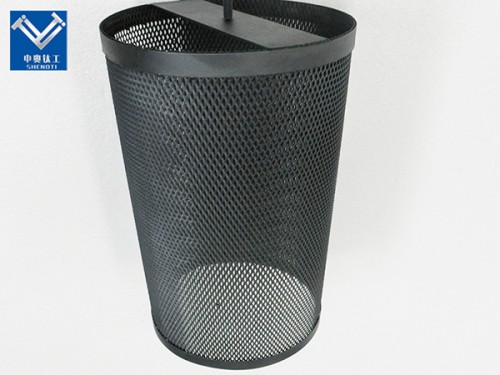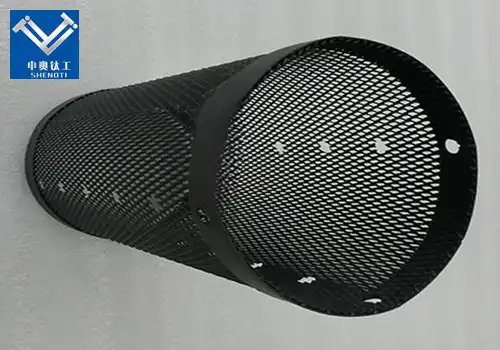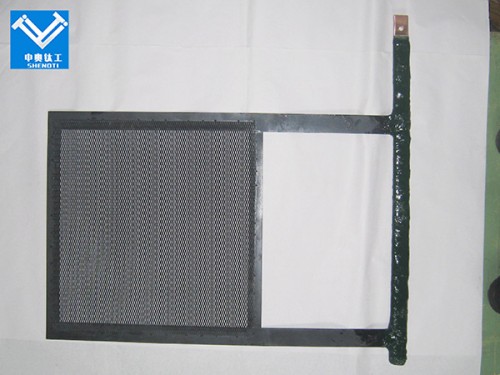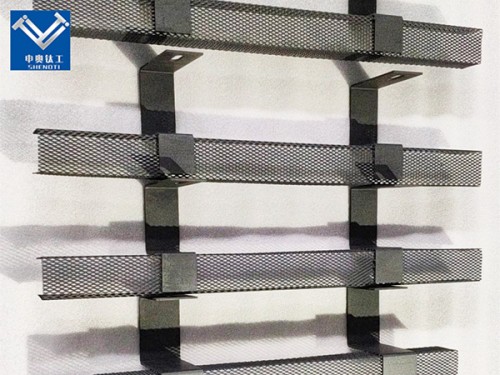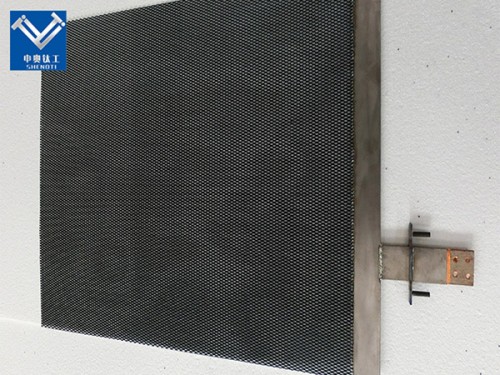
What is a Titanium Anode for Electrolysis of Seawater to Produce Chlorine?
2025-08-28 10:16:41
The titanium anode for electrolysis of seawater to produce chlorine is a critical innovation in modern seawater treatment, water disinfection, and industrial chlorine production. By combining the corrosion resistance of titanium with advanced catalytic coatings, this type of anode delivers high efficiency, long service life, and environmental sustainability. In a world where demand for clean water and chlorine-based disinfectants is rising, titanium anodes are increasingly replacing traditional graphite or lead-based electrodes.
What is a Titanium Anode for Electrolysis of Seawater to Produce Chlorine?
A titanium anode for electrolysis of seawater to produce chlorine is an electrochemical component designed for seawater electrolyzers. Its main role is to efficiently convert chloride ions (Cl⁻) present in seawater into active chlorine compounds such as chlorine gas (Cl₂), sodium hypochlorite (NaOCl), or hypochlorous acid (HOCl). These compounds are widely used for disinfection, sterilization, bleaching, and industrial chemical processes.
Key Characteristics Titanium Anode for Electrolysis of Seawater to Produce Chlorine
Base Material: High-purity titanium (Grade 1 or Grade 2), chosen for its corrosion resistance.
Coating Layer: Mixed metal oxide (MMO) coatings such as ruthenium oxide (RuO₂), iridium oxide (IrO₂), or platinum, which provide high catalytic activity.
Electrochemical Performance: Low overpotential for chlorine evolution, high current efficiency, and stable operation in seawater environments.
Durability: Service life ranging from 5 to 15 years depending on the coating and operating conditions.
Manufacturing Process of Titanium Anode for Electrolysis of Seawater to Produce Chlorine
The production of a titanium anode for electrolysis of seawater to produce chlorine requires strict control of materials and surface treatment techniques to ensure long-term stability.
1: Selection of Titanium Substrate
Commercially pure titanium (Gr1/Gr2) is used because of its excellent resistance to chloride-induced corrosion.
2: Surface Pretreatment
Mechanical polishing: Removes oxide films and impurities.
Acid etching: Enhances surface roughness for better coating adhesion.
Cleaning: Removes contaminants to prepare for uniform coating deposition.
3: Coating Application
The catalytic coating is applied through techniques such as:
Thermal decomposition (sol–gel or paint-bake methods).
Plasma spraying for advanced uniform coatings.
Electrochemical deposition in specific cases.
4: Heat Treatment
The coated titanium substrate undergoes repeated cycles of heating at controlled temperatures to form stable crystalline phases of RuO₂, IrO₂, or mixed oxides.
5: Quality Inspection
Electrodes are tested for:
Adhesion strength of coatings.
Chlorine evolution efficiency.
Accelerated lifetime performance under simulated seawater conditions.
Technical Advantages of Titanium Anode for Electrolysis of Seawater to Produce Chlorine
1. High Chlorine Evolution Efficiency
Titanium anodes minimize energy loss due to their low chlorine evolution potential, making the electrolysis process more energy-efficient.
2. Long Service Life
With MMO or platinum coatings, a titanium anode for electrolysis of seawater to produce chlorine can last more than 10 years, reducing maintenance costs.
3. Corrosion Resistance
Titanium naturally forms a passive oxide film that protects against seawater corrosion, ensuring long-term stability.
4. Eco-Friendly
Compared to lead-based anodes, titanium anodes eliminate heavy metal contamination, ensuring safe operation in environmental and drinking water projects.
5. Flexibility of Design
Available in mesh, plate, rod, or tubular forms to fit different electrolyzer designs and chlorine generation systems.
Industrial Applications of Titanium Anode for Electrolysis of Seawater to Produce Chlorine
1. Seawater Desalination Plants
In desalination pretreatment, titanium anode for electrolysis of seawater to produce chlorine generates sodium hypochlorite on-site, preventing biofouling and microbial growth in reverse osmosis membranes.
2. Marine and Offshore Platforms
Offshore oil rigs and ships use titanium anodes to disinfect seawater intake systems, ensuring the safety of cooling and ballast water.
3. Power Plants Cooling Systems
Power stations located near coastal areas rely on seawater cooling. Titanium anodes provide reliable chlorine generation to control biofilms and fouling organisms.
4. Municipal Water Treatment
Cities with direct seawater or brackish water sources adopt on-site chlorine generation systems with titanium anodes for safe disinfection.
5. Swimming Pools and Aquaculture
The controlled release of chlorine using titanium anodes ensures safe water conditions in large pools and fish farming facilities.
Case Studies of Titanium Anode for Electrolysis of Seawater to Produce Chlorine Applications
1: Middle East Desalination Facility
A 200,000 m³/day seawater desalination plant adopted titanium anode for electrolysis of seawater to produce chlorine to produce on-site sodium hypochlorite. The result was a 30% reduction in chemical import costs and significant improvement in membrane lifespan.
2: Offshore Oil Platform in South America
Titanium anodes were installed in the seawater injection system to prevent biofouling. The platform reported stable chlorine generation and a reduction in unplanned maintenance shutdowns.
3: Coastal Power Station in Asia
Using titanium anodes for seawater electrolysis, the power plant achieved reliable cooling water treatment, reducing biofilm formation by 95% and extending condenser cleaning cycles.
Key Concepts Titanium Anode for Electrolysis of Seawater to Produce Chlorine
1. Chlorine Evolution Reaction (CER)
The core electrochemical reaction where chloride ions (Cl⁻) are oxidized to chlorine gas (Cl₂).
2. Sodium Hypochlorite Generation
Titanium anodes directly generate NaOCl in seawater, which is effective for disinfection without chemical handling risks.
3. MMO Coating
Mixed Metal Oxide (RuO₂, IrO₂, Ta₂O₅) coatings provide stability and catalytic activity.
4. Current Density
Typical operating current densities for titanium anodes range from 1000–5000 A/m² depending on the system design.
5. Cell Voltage
Optimized titanium anodes lower the overall cell voltage, enhancing energy savings.
Why Choose Titanium Anode for Seawater Electrolysis?
Investing in a titanium anode for electrolysis of seawater to produce chlorine ensures:
Reduced operational costs.
Environmentally friendly chlorine generation.
Safer and more efficient water treatment processes.
Compliance with global water quality standards.
The titanium anode for electrolysis of seawater to produce chlorine has become a cornerstone technology in modern water treatment and industrial disinfection. With its superior corrosion resistance, long service life, and efficiency in chlorine generation, titanium anodes are widely adopted in desalination plants, power stations, marine systems, and municipal projects.
Contact Us
Baoji City ShenAo Metal Materials Co., Ltd.
📧 Email: zh@baojiti.com.cn
Tel: 18729731603
Website: https://www.shenaocladplate.com
YOU MAY LIKE











